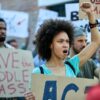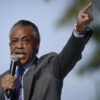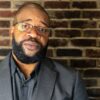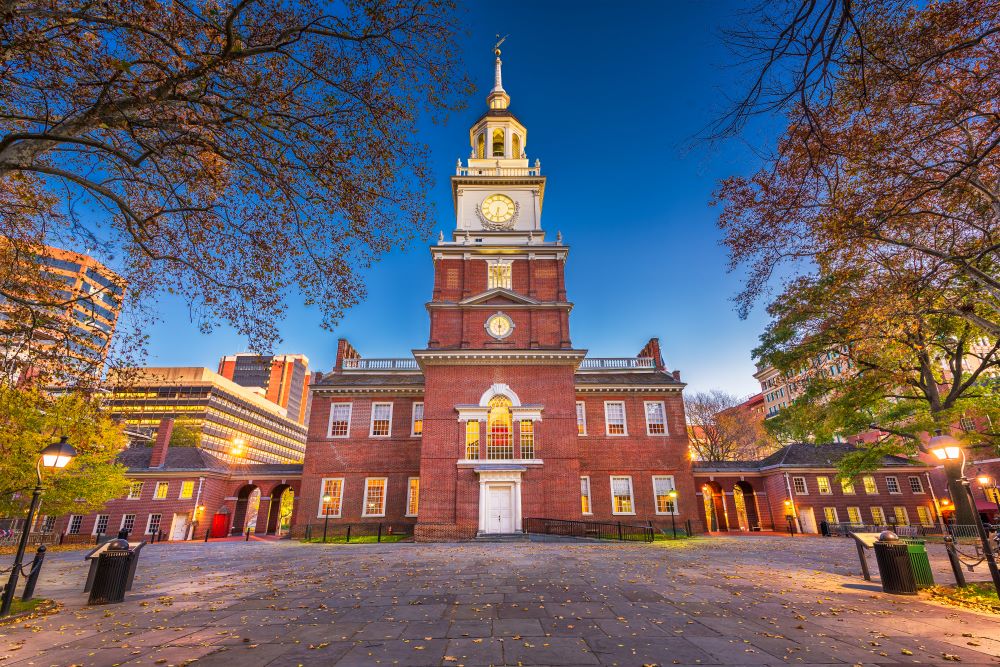-
play_arrow
WURD Radio
Philadelphia is the birthplace of America. Home to the constitutional convention, the City has a history deeply entrenched in this country’s founding and its governing laws and rules. However, these principles dedicated to life and liberty have often only been applied to a select few, leaving many behind, especially Black Americans.
The paradox of a country defined by freedom yet still enslaving people and limiting their human rights inspired numerous movements dedicated to liberation and equality. This Black History Month, WURD radio looks at just a few of Philly’s extraordinary changemakers and civil rights activists.
James Forten (1766-1842)
James Forten was born free in Philadelphia on Sep. 2, 1766. In the early 1800s, he became known for his activism when he organized a petition calling for congress to emancipate enslaved people. Furthermore, he then wrote and published letters arguing against the prohibition of free Black immigration into Pennsylvania by the state legislature. Forten became a successful businessman and eventually joined forces with Richard Allen to form The Convention of Color, which served as political gatherings where formerly enslaved Black Americans could organize and strategize for racial justice.
Frances Ellen Watkins Harper (1825-1911)
Raised by her uncle, abolitionist William Watkins, Frances Ellen Watkins Harper moved to Philadelphia in 1853 to become active in the Underground Railroad. In 1854, she moved to Boston; however, four years later, she returned to Philadelphia and gained notoriety for refusing to give up her seat on a segregated trolley. She was a staunch advocate for Black women joining the Women’s suffrage movement, and in 1896, she became the vice president of the National Association of Colored Women. In tandem with her activism, Harper was a prolific educator, poet and author whose works painted a portrait of the lives of Black Americans in the 1800s.
Sadie Tanner Mossell Alexander (1898-1989)
Sadie Tanner Mossel Alexander was born into a family of impressive people; her uncle was the artist Henry Ossawa Tanner; her father was the first African American to graduate from the University of Pennsylvania Law School; and another one of her Uncles, Louis Baxter Moore, was one of the first African Americans to receive a Ph.D. from the University of Pennsylvania. Like her family members, Alexander found herself at Penn. There, she began to engage in Civil Rights activism due to Black students not being served at any lunch counter in the University area. She obtained her Ph.D. in economics from Penn and was the first Black woman to do so. She broke barriers again when she became the first Black woman to enroll in Penn’s law school. She eventually served on the civil rights commission, whose 1947 findings led Truman to call for a federal law outlawing lynching.
Cecil B. Moore (1915-1979)
You can hear Cecil B. Moore’s name daily around Philly. He was born in West Virginia and joined the Marine Corps, where he served as a sergeant during World War II. In 1947 he landed in Philadelphia, where he studied law at Temple University and became a defense attorney. His military training and knowledge of the law led him to become a militant civil rights activist who disrupted the scene of mainly middle-class Black Americans in Philadelphia. Dedicated to the rights of all African Americans regardless of class status, Moore sought to unify the Black community and encouraged Black Philadelphians to vote. Another strategy that he used was picketing which led to Black admittance into labor unions, public school integration, and more. His ability to organize led him to become the president of the Philadelphia chapter of the NAACP. His goal was to inspire and empower Black people to take action through demonstrations and protests.
Reverend Paul Washington (1921-2002)
Paul Washington was a Lincoln University and Philadelphia Divinity School graduate, and in 1947 he became an ordained priest in the Episcopal Church. In 1962 he became a rector of the now-well-known Church of the Advocate, where he served for 25 years. Reverend Paul Washington supported many movements and causes, including the Black Power movement, gay rights, women’s rights and class justice. He allowed the Church of the Advocate to become a space for radical organizing when in 1968, the Church hosted the Black Power Convention and then, in 1970, hosted the national convention of the Black Panther Party. In 1974 he hosted the ordination of the first women in the episcopal church, which prompted the church to let women into the priesthood in 1977. In addition to opening the doors of the Church of the Advocate to various civil rights movements, Washington himself was an advocate for reparations being paid to descendants of enslaved people and served on the MOVE Commission to investigate the 1985 bombing.
Marie Hicks (1923- 2007)
Cecil B. Moore, as talked about above, was a significant figure who led the fight to integrate Girard College; however, another name is crucial to this history. Marie Hicks moved to North Philadelphia in the 1960s with her husband and children. In 1965 she wanted her two sons to attend the then white-only Girard College when she caught a glimpse behind the 10ft wall surrounding the college and saw it as an opportunity for her sons. Joining forces with Cecil B. Moore, she led thousands of pickets outside of the school and joined three other parent plaintiffs in a federal discrimination suit filed against the Girard. When the supreme court struck down the appeal in 1968, her sons were a part of the first cohort of Black men to attend Girard college. Her son Theodore graduated in 1977 as the first African American valedictorian.
THE WURD WEEKLY NEWSLETTER
Black Talk Media sent straight to your inbox.
BECOME A MEMBER
The forWURD Movement is your way to
protect and preserve Independent Black Media.
Written by: WURD Radio
black history month Black Leaders Cecil B. Moore Frances Ellen Watkins Harper James Forten Marie Hicks (1923- 2007) onWURD pennsylvania philadelphia philly Philly Fighters Reverend Paul Washington Sadie Tanner Mossell Alexander wurd radio
Similar posts
Featured post
Latest posts

This week on WURD: Trump’s “mega bill,” Medicare cuts, U.S.-Iran tensions

Teens Cultivate Soil and Safety at Sankofa Community Farm

This week on WURD: Musiq Souldchild shares his journey, PA’s budget delays, Sherri Shepherd’s latest role

This week on WURD: Philly teachers on strike, SEPTA’s funding issues, Sankofa through farming

This week on WURD: I.C.E. in Los Angeles, “No Kings Coalition” march, Philly Black business market
Current show
Upcoming shows

Wake Up With WURD
7:00 am - 10:00 am
Reality Check
10:00 am - 1:00 pm

Keepin’ It Real with Rev. Al Sharpton
1:00 pm - 4:00 pm

Evening WURDs
4:00 pm - 7:00 pm

The Tavis Smiley Show
7:00 pm - 10:00 pm
WURD Radio LLC © 2012-2021. All rights reserved.








Post comments (0)